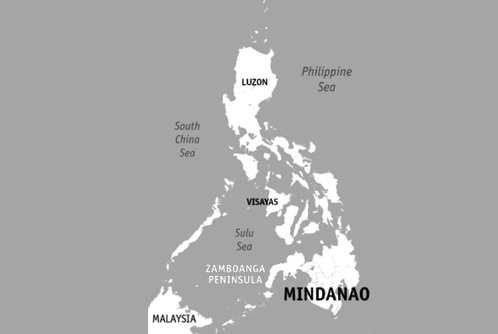
Islamic militants have re-ignited the separatist conflict in the Philippines, with the Philippine Army fighting street battles to reclaim the city of Zamboanga in the southern island of Mindanao from the Moro National Liberation Front (MNLF) who attempted to seize control to derail the peace process between the government and the Moro Islamic Liberation Front (MILF). The two sides had reached a tentative ceasefire accord in October 2012 following a conflict that has raged for forty years and claimed the lives of an estimated 120-150,000 people.
The conflict was reignited after the MNLF objected to the government's peace deal with the MILF, fearing it would be marginalized in the process and that its own peace treaty with the government, signed in 1996 would be overridden. The peace deal being negotiated with the MILF would create a new self-governing area with greater regional autonomy then was conceived by the 1996 treaty.
On August 12th, MNLF founder Nur Misuari declared independence for the Muslim-majority southern region of the Catholic-majority country and called for the besieging of government installations. On September 10th, it was reported that Muslim militants were using 180 residents as “human shields” as they traded fire with the Army. On Wednesday, Militants used a rope to tie together a dozen civilians and use them as a human shield as a standoff in a southern Philippine city entered its third day. The hostages were waving white flags and shouting "please don't shoot" while rebel snipers perched on the roof of a residential block fired at the troops about 500 yards away in the Santa Barbara district of Zamboanga. In more than a week of fighting, close to a 100 have been killed and 70-80,000 people have been displaced, destroyed buildings and neighborhoods and wrecked the regional economy.
The new conflict has also divided Philippine politicians. Critics of President Benigno Aquino have accused his administration of sidelining the MNLF and for taking too hard a line, including rejecting a proposed cease-fire deal and refusing to allow a safe passage for MNLF rebels out of the city in exchange for the release of hostages. Supporters of President Aquino, including many residents of Zamboanga and the Mindanao island, have blamed previous administrations for lassitude and hold that previous “safe passage” deals had emboldened militants committing acts of terrorism by allowing them to escape without facing any consequences.
